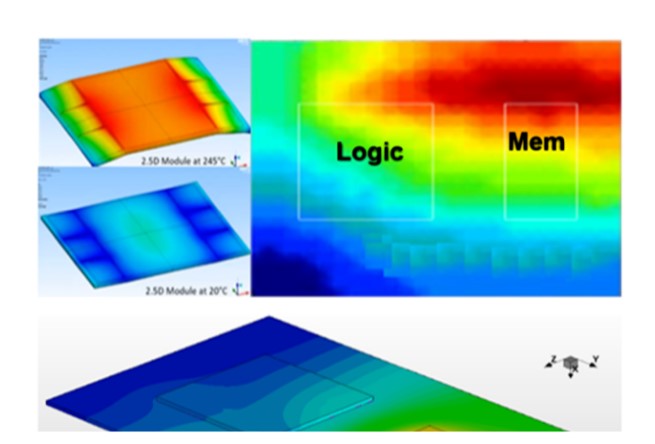Society is changing with each passing day, and science and technology are making continuous progress. As early as August 2022, the number of mobile Internet of Things connections in China exceeded the number of mobile phone users for the first time, and injected strong new kinetic energy into the vigorous development of China's digital economy. With the development of big data technology, the demand for data centers and high-performance computing systems is increasing. These systems need to process a large amount of data, which leads to a significant increase in the power density of chips. High power density means that more heat needs to be effectively managed and dissipated in a short time. The heat problem not only limits the increase of clock frequency, but also may cause dynamic thermal gradient and thermal stress, which may affect the reliability and performance of the chip. This puts forward higher requirements for the design of heat dissipation system. Chips in big data processing may experience rapid temperature changes. The unpredictability and variability of this transient thermal gradient may lead to thermal stress, which may affect the reliability and performance of chips. For example, when processing big data, a chip may encounter sudden high load, which will lead to a large amount of heat generation in a short time, requiring the cooling system to respond quickly. In order to meet the challenge of thermal management in big data processing, the design of cooling system becomes more complicated. Besides traditional air cooling and liquid cooling technologies, microchannel thermal management may be combined. In addition, in order to improve heat dissipation efficiency, it may be necessary to develop new materials and structures. In order to improve the heat dissipation efficiency, researchers and engineers have also developed a variety of new materials and technologies, such as high thermal conductivity composite materials, heat pipes and heat sinks, graphene heat dissipation materials and so on. At present, ring-gate FET and composite FET bring hope for performance improvement, but at the same time, they also increase the challenges of design, test and cost.

Figure 1: Thermal analysis
In big data processing, it is necessary to effectively manage heat while ensuring system performance. This may involve hardware-software collaborative design, faster physical layer and interconnection technology, and algorithm optimization to ensure effective thermal management without sacrificing performance. In order to solve the challenges brought by big data to chip thermal management, we can consider reducing power consumption, effectively dissipating heat and improving reliability, but no single solution can completely solve the problems. It needs the joint efforts of EDA company, process equipment manufacturers, wafer factories, packaging factories and other parties. In a word, the challenges brought by the era of big data to chip thermal management are various, and many factors such as power density, thermal gradient, heat dissipation system design, new material development, system performance balance, environmental impact and real-time monitoring need to be comprehensively considered to achieve efficient, reliable and sustainable thermal management solutions.






